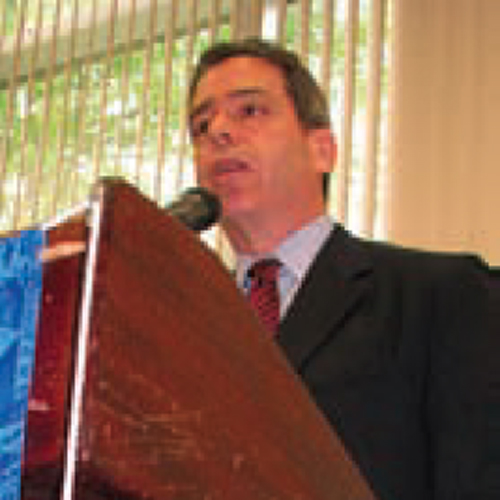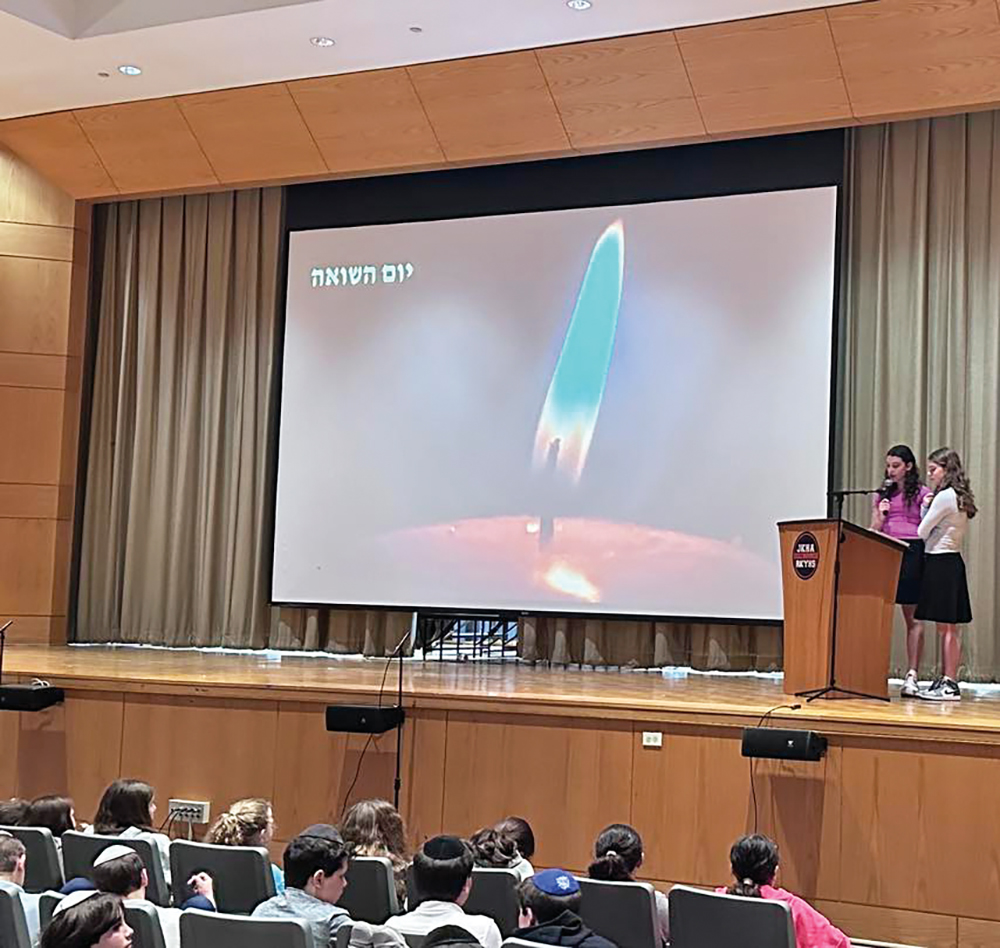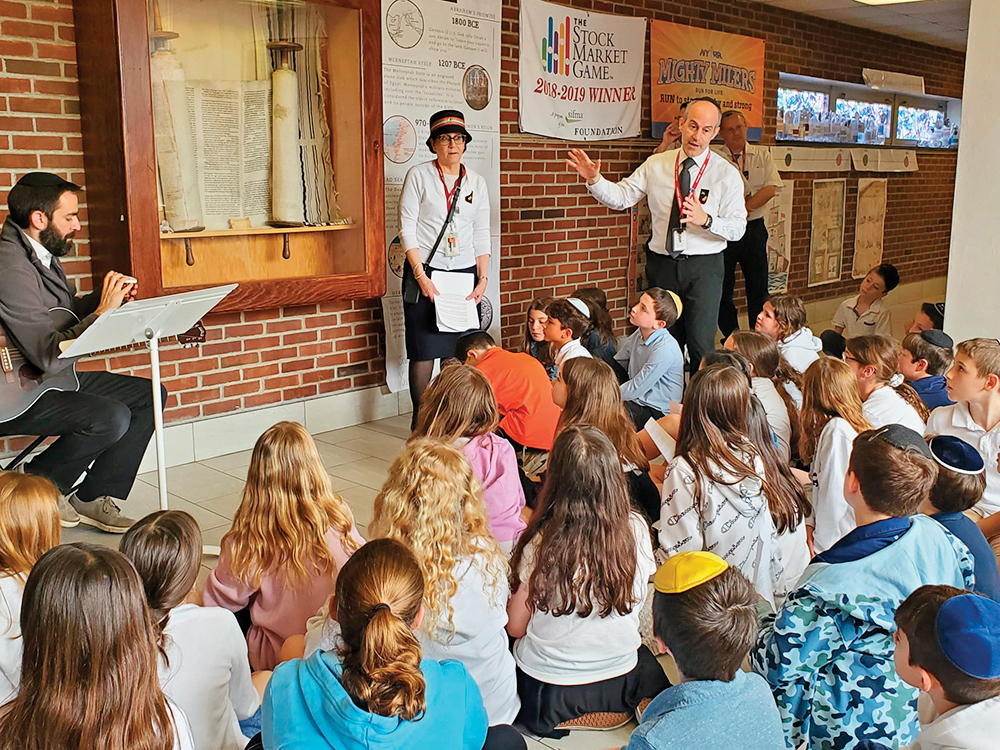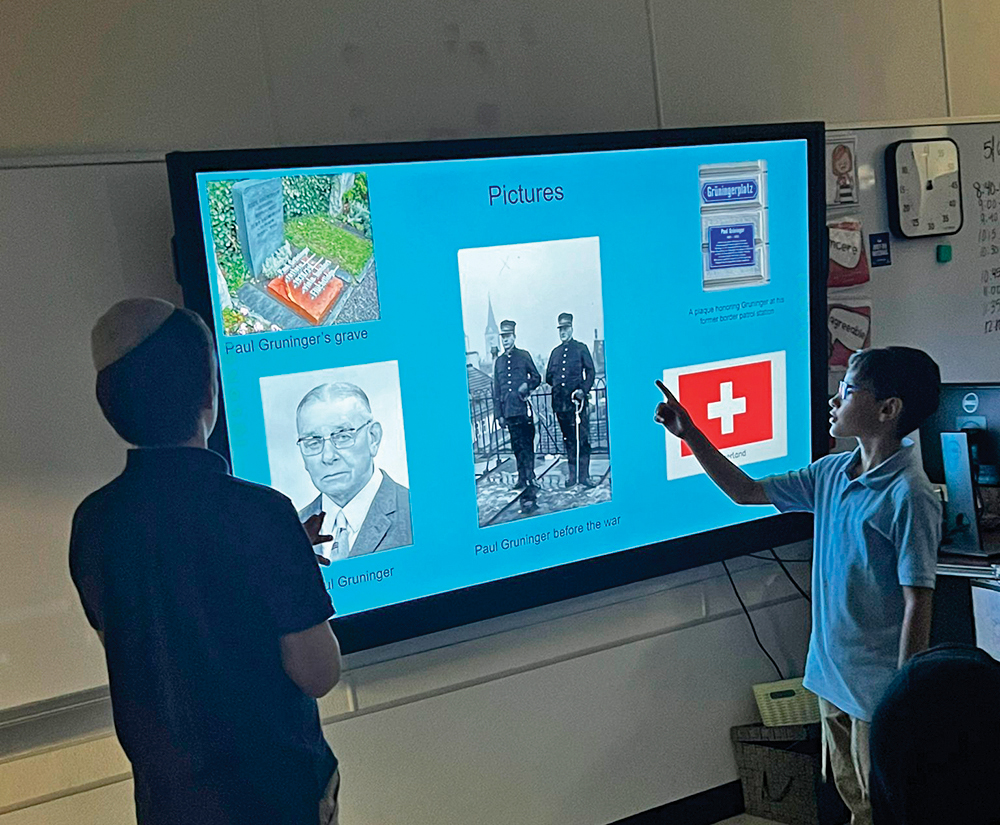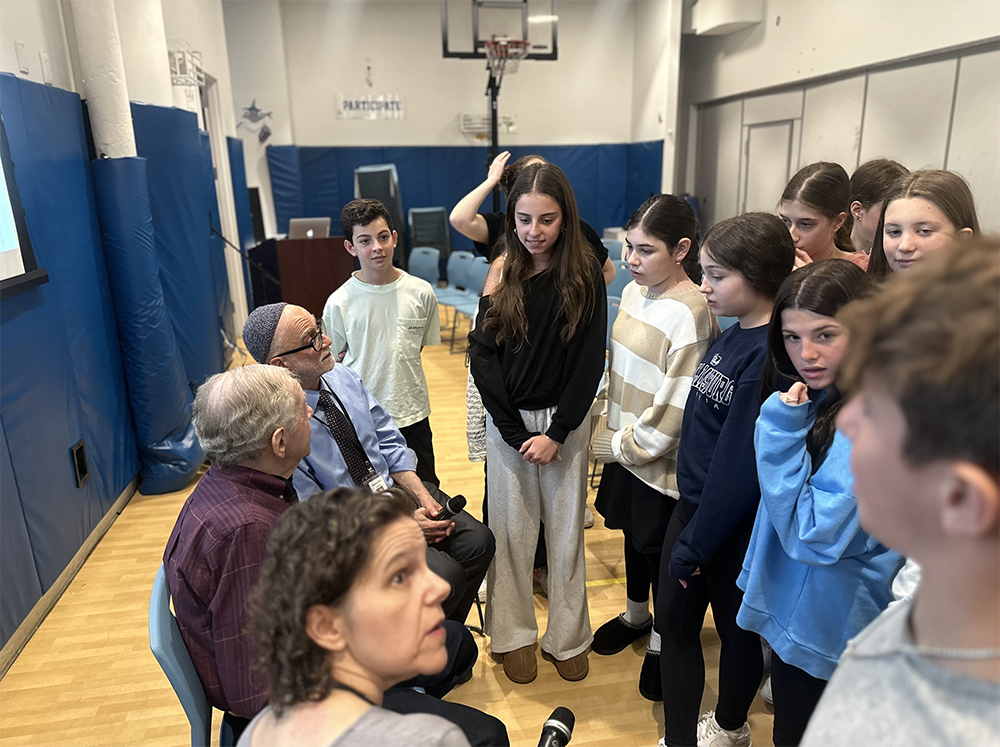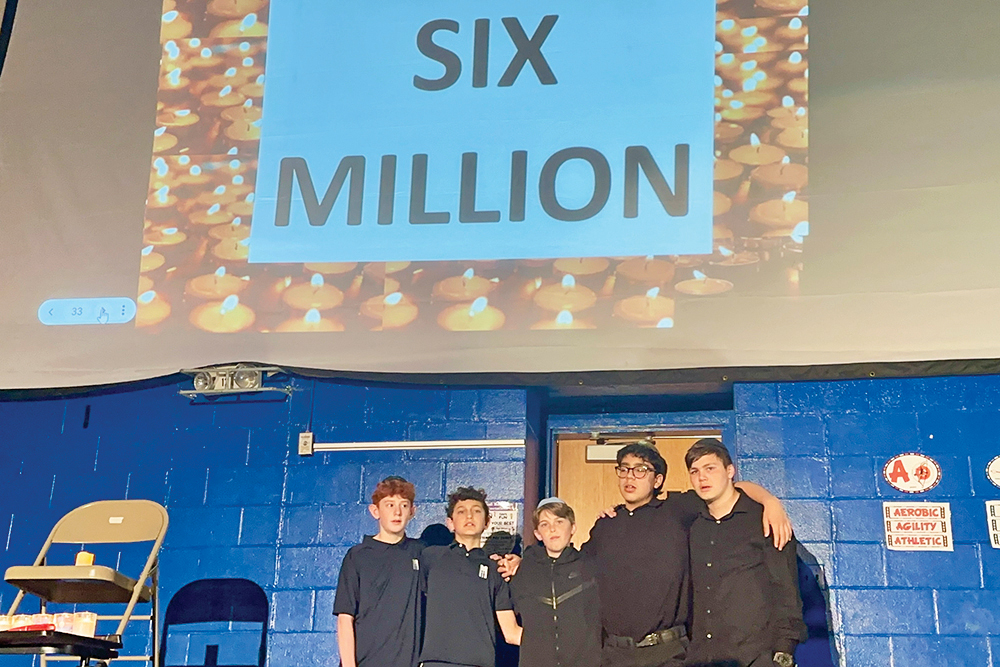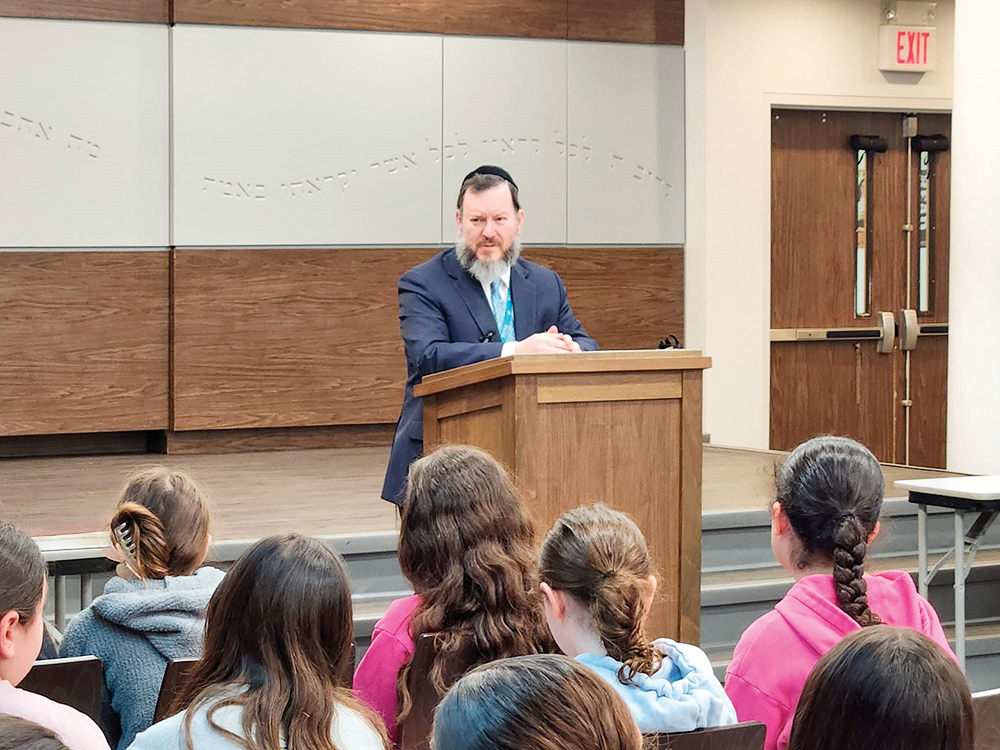.jpg)
Henderson, NV—Diplomatic fireworks sizzled fiercely last Sunday at an intergenerational gathering of Holocaust survivors and their descendants when it sounded as if Mark Weitzman, director of Government Affairs, who is based at the Simon Wiesenthal Center in NYC—told a group of more than 350 survivors of the Holocaust and members of the Second and Third Generations not to visit Poland because of the schechita ban.
In the audience, seated with Polish Holocaust survivors who were in Warsaw for a similar gathering in 2011, was the Polish Consul General in New York, Ewa Junczyk-Ziomecka. She was appalled at what she heard, as were her tablemates, she told JLBC, just moments after Weitzman’s speech ended to the applause of some participants.
In a follow-up conversation, the Consul General told JLBC that she found it very disturbing that in today’s times someone would tell future generations to avoid visiting a country that is a “loyal, political friend of Israel and whose political and cultural elites are committed to combating antisemitism, educating young Poles about the common Polish Jewish history and seeking reconciliation with Jewish communities around the globe.”
Ziomecka explained that the schechita ban is a legal and political issue which after being passed by the Polish Parliament, has been appealed, and is now waiting for the verdict of the Constitutional Tribunal (a Polish equivalent of the Supreme Court). She emphasized that the ban itself was not the result of antisemitic sentiments quoting the opinion of the chief rabbi of Poland, Michael Schudrich: “This has nothing to do with antisemitism.” (The Forward, Nov. 15, 2013)
She is also the person who, more than 10 years ago, was one of the creators of the concept of the Museum of the History of Polish Jews and had a vision for a museum of Polish Jewish History, which would tell the story in the place where contemporary Judaism—in all its forms and denominations, from Hasidim and Mitnagdim to Zionists and Yiddishists and more—was born. (Today’s Belarus used to be part of Poland, as was Ukraine.) Four Israeli Prime Ministers were born in interwar Poland, which regained its independence in 1918.
“For almost one thousand years we jointly inhabited the same land. But the war, with its death and destruction, should not be seen as the last chapter. We have to work together to make the world better, not worse. We should be creating new, positive chapters in our history,” said the Consul General.
The museum had a soft opening in Warsaw last Yom Hashoah. Right now it serves as an educational and historical center and sits on top of where Warsaw’s Jewish Quarter and the Ghetto once stood. The area was leveled by the Germans soon after the Ghetto Uprising.
When she spoke of the museum and the history of the Jews of Poland there was naught but passion in her voice. “The legacy of the past is not just one of death and destruction. The legacy is also one of accomplishments and co-habitation. When we started, no one wanted such a museum. But then, as they realized the importance of preserving this history, many Polish Christians and Jews alike joined in the endeavor. Poland is where almost 80% of American Jews and a large percentage of Israelis come from. It is their legacy, it is also their place.
“The museum—more than anything else—is an educational center, a place where people will come to learn about our shared history and our accomplishments, and also how we can work together. Because the museum faces the monument dedicated to the Warsaw Ghetto Uprising, visitors will also be reminded of the Holocaust.”
She noted that Weitzman did not ask people in the audience to avoid visiting Norway, Sweden and Switzerland, where schechita is banned. “I found it really heartbreaking that a representative of the Wiesenthal Center, which is supposed to stand for tolerance, singled out the people of Poland and their country, oblivious to the progress that has been made since Poland regained its independence from the Soviet Union in 1989,” said Ziomecka.
“He is oblivious to the fact that that he is insulting the memory of those Poles who risked their lives to save Jewish people and ignoring the existence and efforts of hundreds of thousands of young and old Polish patriots devoted to making Poland a place hospitable for all—including the Jews.”
She added, “I was very heartened to see that the Polish Holocaust survivors seated at my table were upset and went to the organizers to voice their dissent.”
Weitzman told JLBC that his statement in Henderson was conditional, but it seems that that was not what was heard by many people in the audience, including this writer. At one table, people were distracted and listening for keywords, not really paying close attention. He told JLBC, “I said IF Poland cannot guarantee the right of freedom of Jews to practice their religion freely, and ends up barring shechita, I would recommend that Jewish organizations think twice before suggesting or holding meetings in Poland.” And then he added the words he used at the conference when he closed his remarks: “I hope Poland chooses wisely and that this does not become an issue. I have been in touch with leaders and Jews in Poland and with the Polish government, and I hope the situation can be resolved as soon as possible.”
Weitzman also told JLBC that last June he met with museum leaders and educators in Warsaw and was very impressed by the warm and inviting structure. “They have some exciting plans and ideas, and we have offered to cooperate with them and I hope we will continue to work together. I look forward to seeing the core exhibition when it is installed, because I am glad that there is something that will tell the story of the history of Polish Jewry in all its complexities—with all its joy and all its sorrows.”
Dr. Michael Berenbaum, the Holocaust scholar, arrived at the hall in Henderson in time to witness the noisy reaction to Weitzman’s speech. He is close to Weitzman and the Polish Consul General, both long-time friends of his. He told JLBC, “It was remarkable to realize that what people heard was different from what was said, which clearly indicates the high sensitivity of the relationship between Poles and Jews even now. But I do think that the forces in Europe arguing against schechita and circumcision—in their quest for human rights and animal rights—trespass people’s deep and historical religious sensitivities. Given the fact the Jews and Muslims both share these concerns, this offers their communities the rare opportunity to join together to protect their own and each other’s religions.”
Junczyk-Ziomecka told JLBC, “The Jewish Second and Third Generations want to learn about the Holocaust, the tragic chapter of Polish-Jewish history—which is what the Poles are trying to do as well. We did not ask the Germans to build their death machine on Polish soil, and yes, there were many instances of murder and crime inflicted on Jews by their fellow citizens. There was and still is evil and prejudice everywhere, not only in Poland—which is why I believe that people of good will must join forces and devote themselves to education and to leading the struggle against the rebirth of antisemitism and fascism, so that the Holocaust does not happen again.”
By Jeanette Friedman


